It is not easy to imagine Sziget if you do not live there. The term is not hyperbolic: the island of Óbuda, the largest of those that fill the stretch of the Danube that passes through Budapest, is about 2.75 km long. To go from one end to the other takes, well, a while, and in the meantime you have the perception (perhaps the certainty) of having ended up in the middle of a parallel order.
Tents on street corners, more than 50 stages often to be found like an orienteering challenge, “neighborhoods” dedicated to art, sports, games, sideshow rides (want to go bungee dumping? Here you go), an international community that, for the six days of the festival (this year the dates were August 7-12), decides to form itself into an anarchic but peaceful republic, far from the mad crowd of the Hungarian capital, which at times fascinates with its still post-Soviet sex appeal, at times unnerves with the prices of skyrocketing inflation, and at others still becomes a clever tourist destination, cleaning up here and there for Instagram photos.
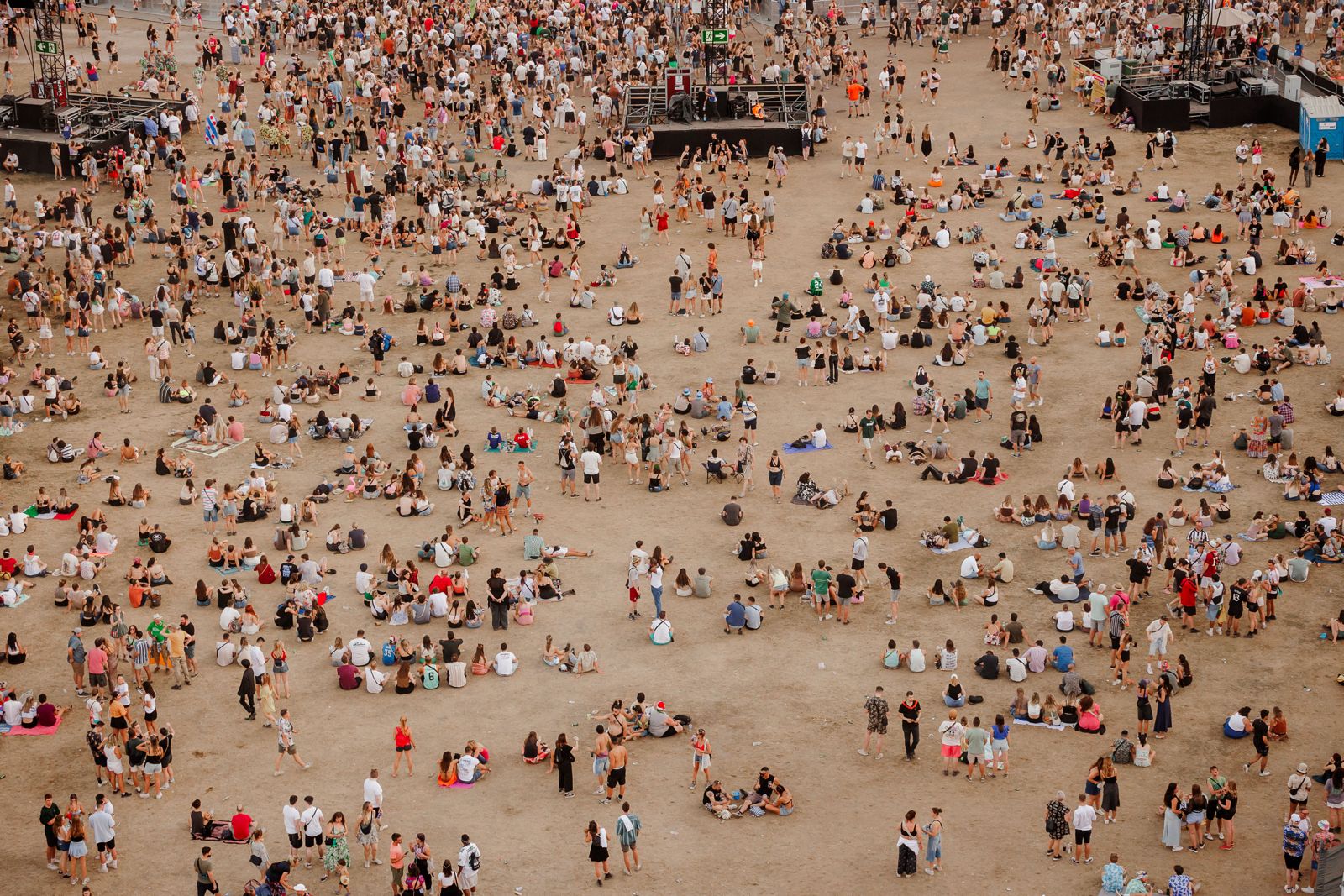
Photo: press
In this parallel society – which survives untouched despite the authoritarian gusts of Viktor Orbán – music almost seems to play the role of reserve. Or rather, let’s be clear: a lineup of more than 100 artists and disparate genres speaks for itself, as does the presence among the headliners of names like Kylie (Minogue), Sam Smith, Fred Again.. (at his first time in Hungary), Halsey and Liam Gallagher. Yes, okay, people come to Sziget for the music – many from Italy respond to the writer’s Instagram stories saying that they too will be on the Island of Freedom, but only for the last day, to hear the phenomenon that Fred Again has become.. . Those who come “only” for the music, however, arrive during the day, take a break at night (or early in the morning, as there are plenty of dance opportunities) and go back to sleep in the city. Up until a certain hour, you can get there with a twenty-minute boat ride, and the experience is equivalent to a cleansing psychophysical, anything but a retreat in the woods.
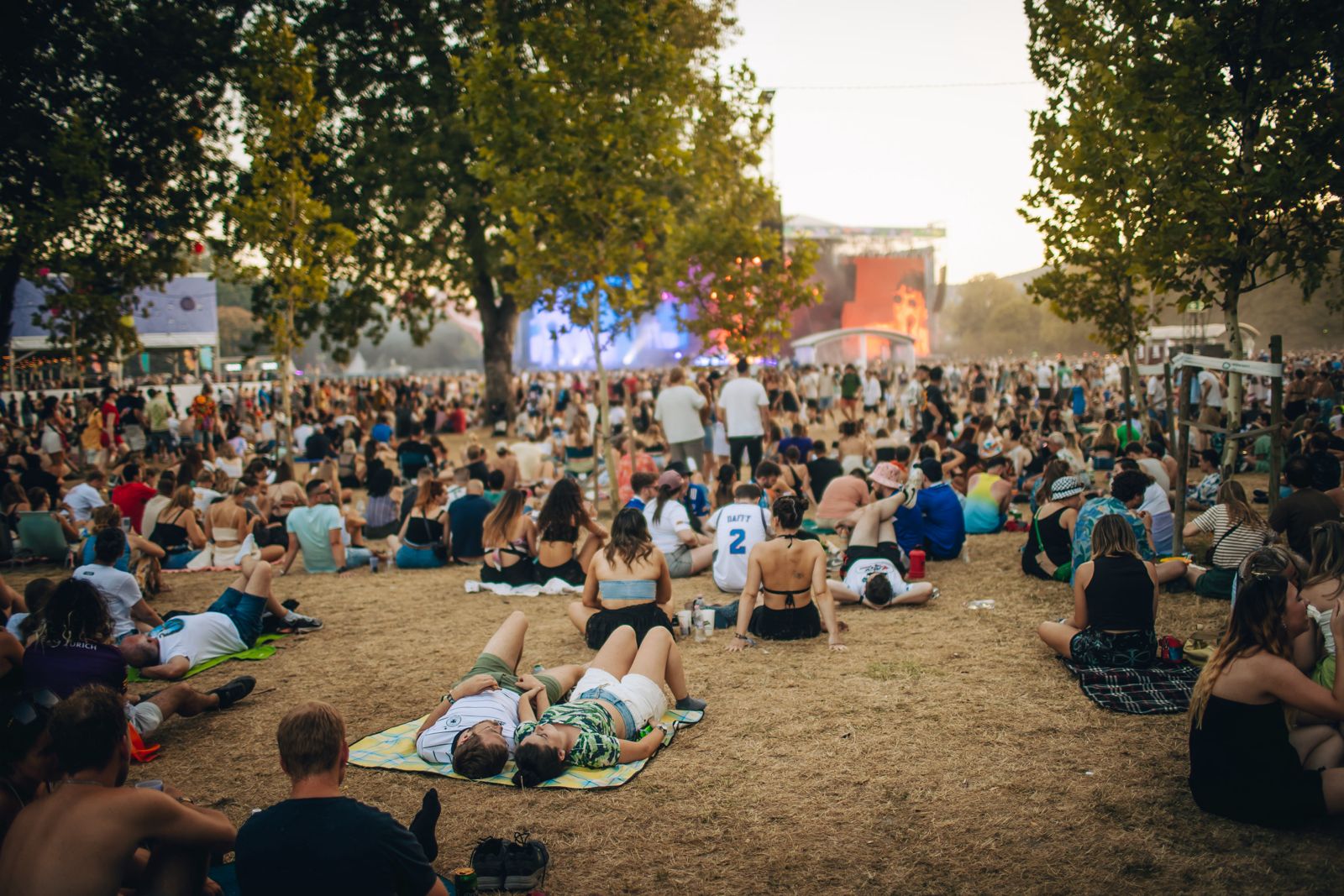
Photo: press
Which is useful and welcome, since Óbuda days can be frenetic. For example, it will surely happen that two of the artists you absolutely wanted to hear overlap (it was the case with Big Thief and Fred Again.., for example), and then you will have to choose how far, strategically, to position yourself from the stage to be able to slip away and walk briskly towards the next stage. Don't take this advice lightly: the acts are heard very loudly, at Sziget, and the competition to enjoy the show incredibly close is very tight. Therefore, islander warned…
But that's not all. Because along the way from one favorite to the next you might come across something unexpected, that will make you prick up your ears, make you stop and, in short, risk making you miss the appointment. In fact, sometimes, at Sziget, the real party happens out of sight, on the smaller stages, which like in all secret clubs offer the trinity of the expert listener: selected audience, community dimension, and the pleasure of discovery.
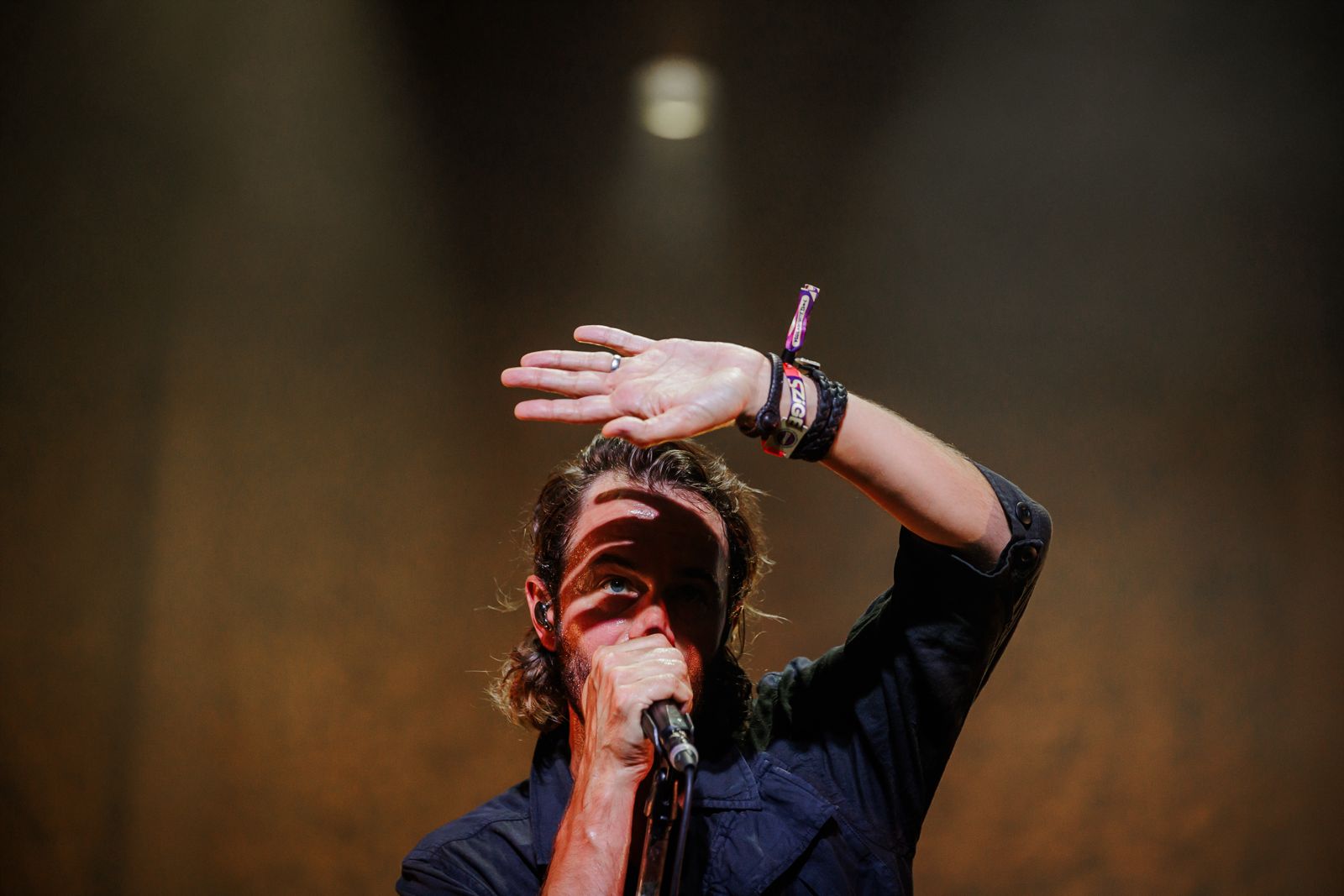
Editors live at Sziget 2024. Photo: press
This is the case of the Lighstage, the Petöfi Stage, and other stages supported by this or that brand. Stages trodden during the six days of the festival by Venerus, Naska, Elasi, Laila Al Habash and Popa for the national quota, but also by, to name just a few, Dead Poet Society, Leland Did It, Artemas, badfocus, Future Static, God is an astronaut, Jiska, Senhit, The Meffs. And who are they, you ask? We don't need to tell you that Sziget will also worry about this answer (and you will be left with the worry of having only seen the big name while an ecosystem flourishes all around).
But let's also say that your will is iron, that no surprise stage attacks, that you proceed at a brisk pace. It might still not be enough, and Sziget will find a way to surprise you even in this eventuality. Because things do not only happen at the times and places commanded: they happen, in fact, on the islandand this could also mean on the streets of Óbuda, with itinerant groups or improvised flashmobs. It is a sidequestmoving to Sziget, a side adventure she hadn't imagined. Melting into the flow is exactly the point of it all.
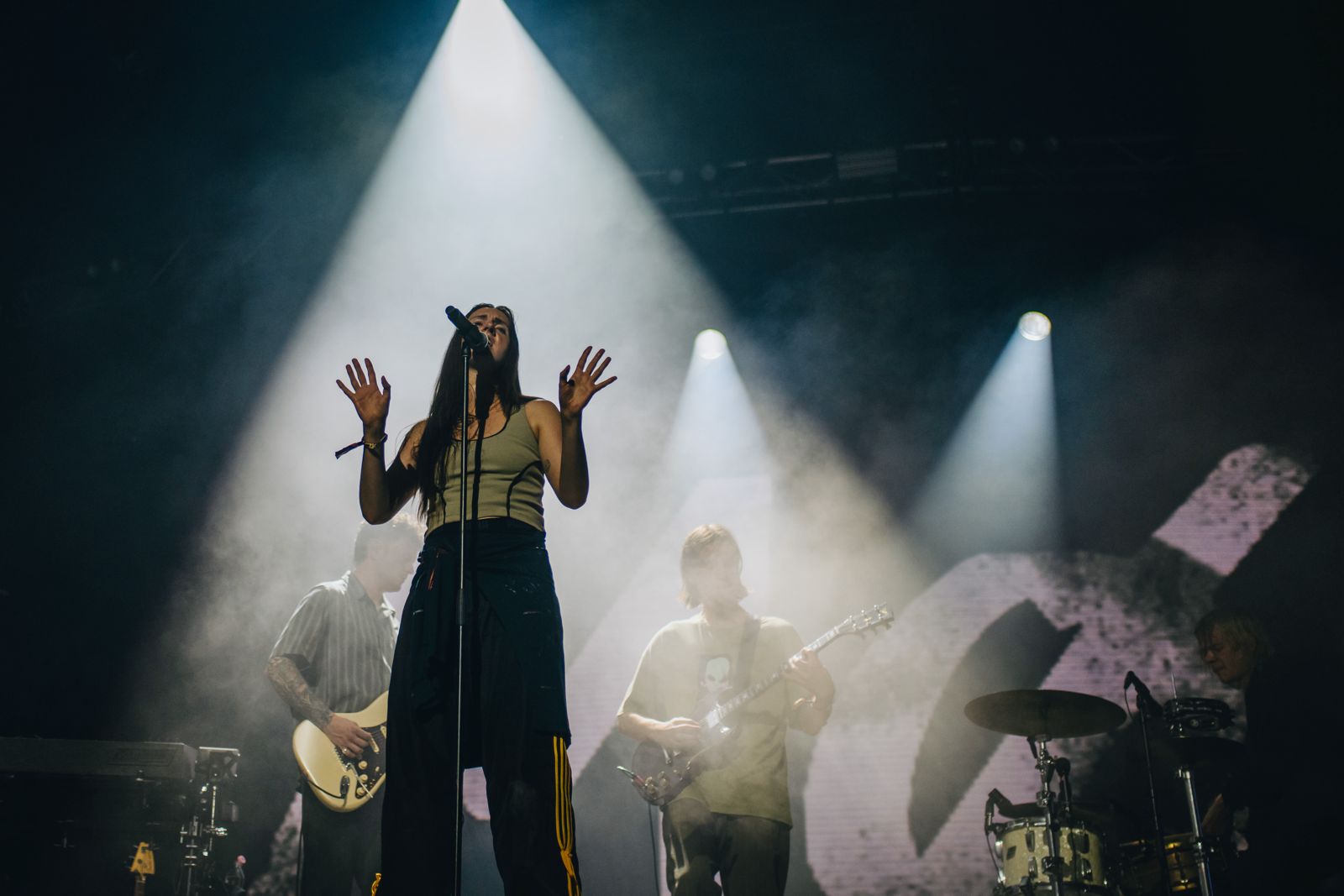
Mø live at Sziget 2024. Photo: press
By now you will have understood: everything at Sziget is crazy, excessive, like a toyland (including the arena and the circus tent, with a busy daily program of performances); endemic Carnival where the only rule is to express oneself. And that leads, little by little, to truly accept it, this flow over which one seems to have no control, over the music that would never want to stop. Existence is marked by new chatter, new faces, new rituals. “You might see someone walking around naked when night falls,” they whisper, but also in cosplay, or with ugly (and perfect) cut-and-sew costumes. Precisely for this reason, everything holds together.
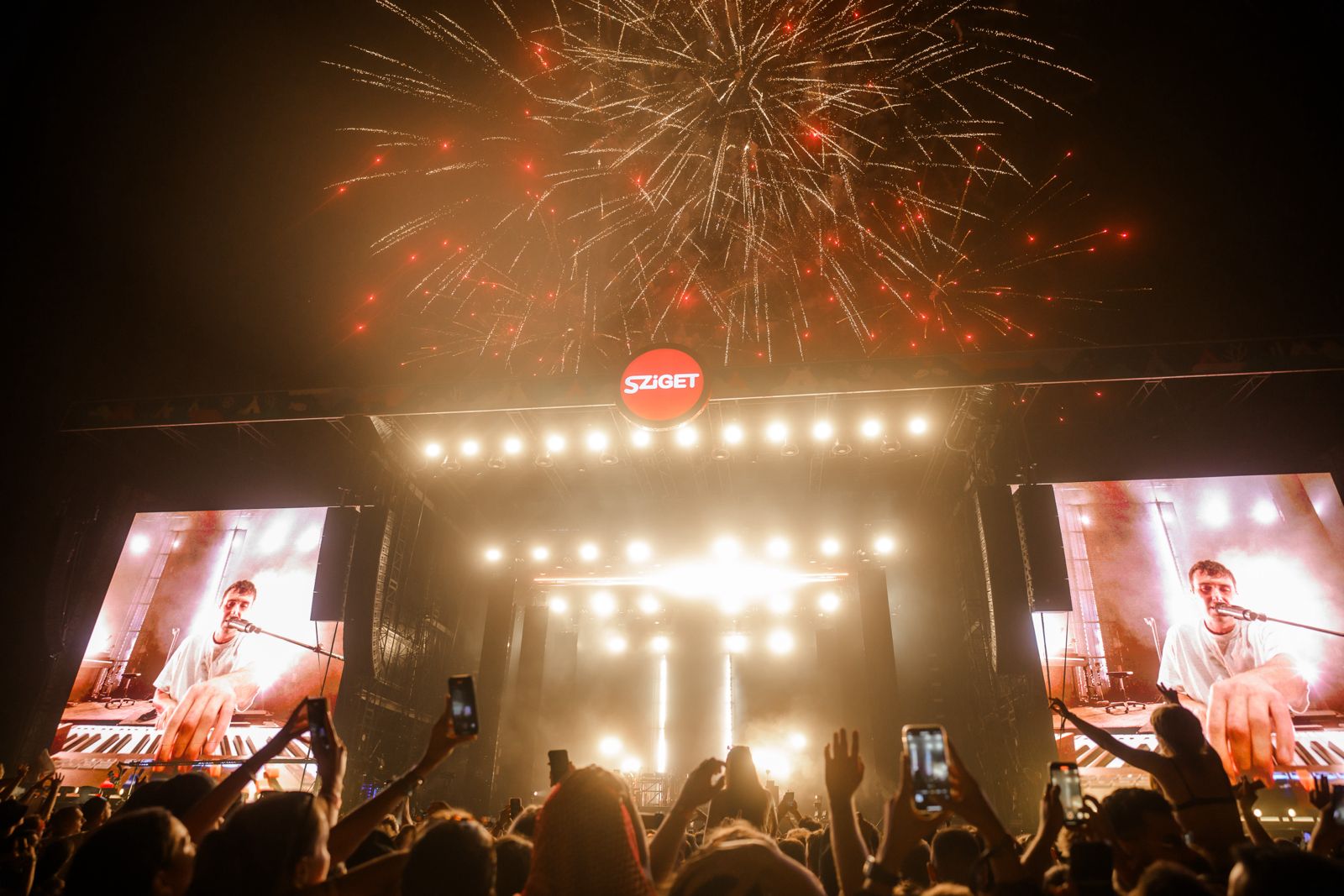
Fred again.. at Sziget 2024. Photo: press
And it is precisely the seal (of cooking the pasta, basically) that Ettore Folliero (Country Manager for Italy of Sziget and Balaton Sound, Artistic and Production Director of the Lightstage programming, one of the stages of Sziget) is also concerned with. At Sziget he takes care of the gastronomic proposal of Mambo Ristorante inside the festival's food court. «I started working with the organization of the festival on the Italian side, in short we were concerned with making the Sziget experience better and more appealing for Italians. We started with the toilets, we improved them and we made them more systematic, then the restaurant arrived».
Which, in the case of Mambo, deals exclusively with carbs: pasta, gnocchi, and company. «The first year of the restaurant was 2008. We combined it with a bar project paired with a festival stage [il Lightstage, ndr]where we do something very simple and impossible at Sziget: serve cold beer, because the refrigerators don't hold it. So we use a refrigerator van and pass them to the bar later.”

Martin Garrix live at Sziget 2024. Photo: press
A caution that is also replicated in Mambo's proposal: «Inside a festival the cold cycle is not always maintained, especially when it is very hot, and we prefer not to serve meat and street food, whose quality is more difficult to control. At festivals you have to be very careful about what you eat: vegetables, water, you need a lot. So we also use a lot of fresh vegetables for our dishes, let's say we willingly take it on, because handling fresh vegetables for cooking is a lot of work, they have to be far from the meat, etc. Many Italians, but not only them, experiment with other restaurants but then come back to us to ask for pasta, because the difference in quality is noticeable». Just to say that, while you are having fun, there are those who think about making your fun more enjoyable (or perhaps sustainable). Also because, Ettore concludes, everything revolves around music: «You have to create experiences that make you feel as good as the music does. Then everything works».
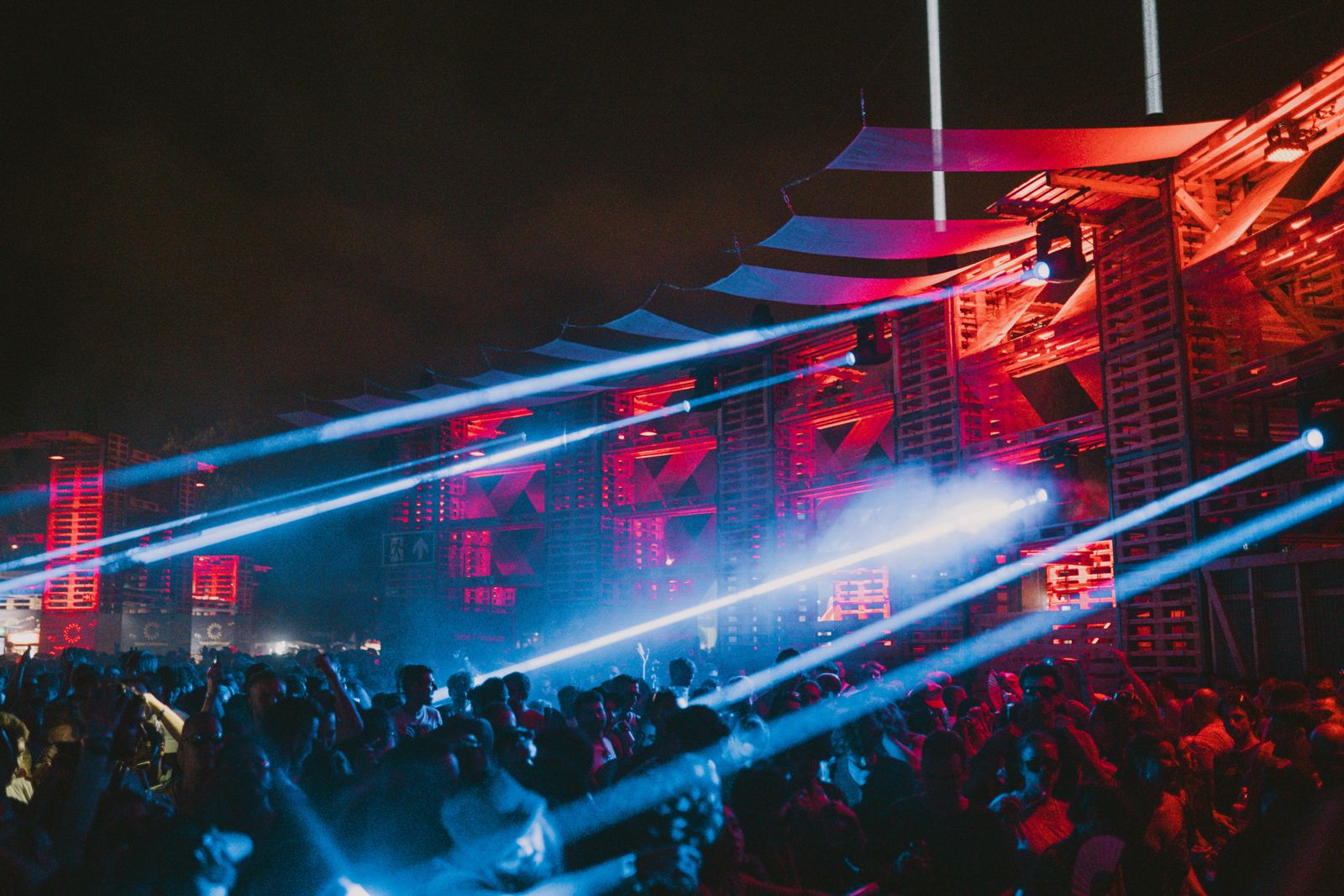
Photo: press
Ettore may not have noticed, or perhaps, after so many years, Sziget has entered his veins. The fact is that there could be no better summary of the spirit of this Island of Freedom born as a crazy dream and become an experience of resistance – and imagination – invaluable. “Under the guise of music, we build things around it”. And if that thing then becomes a city, we could call it utopia. We will check it out at the next edition of Sziget, again on the island of Óbuda, again in Budapest, from 6 to 11 August 2025. Save the dates.

